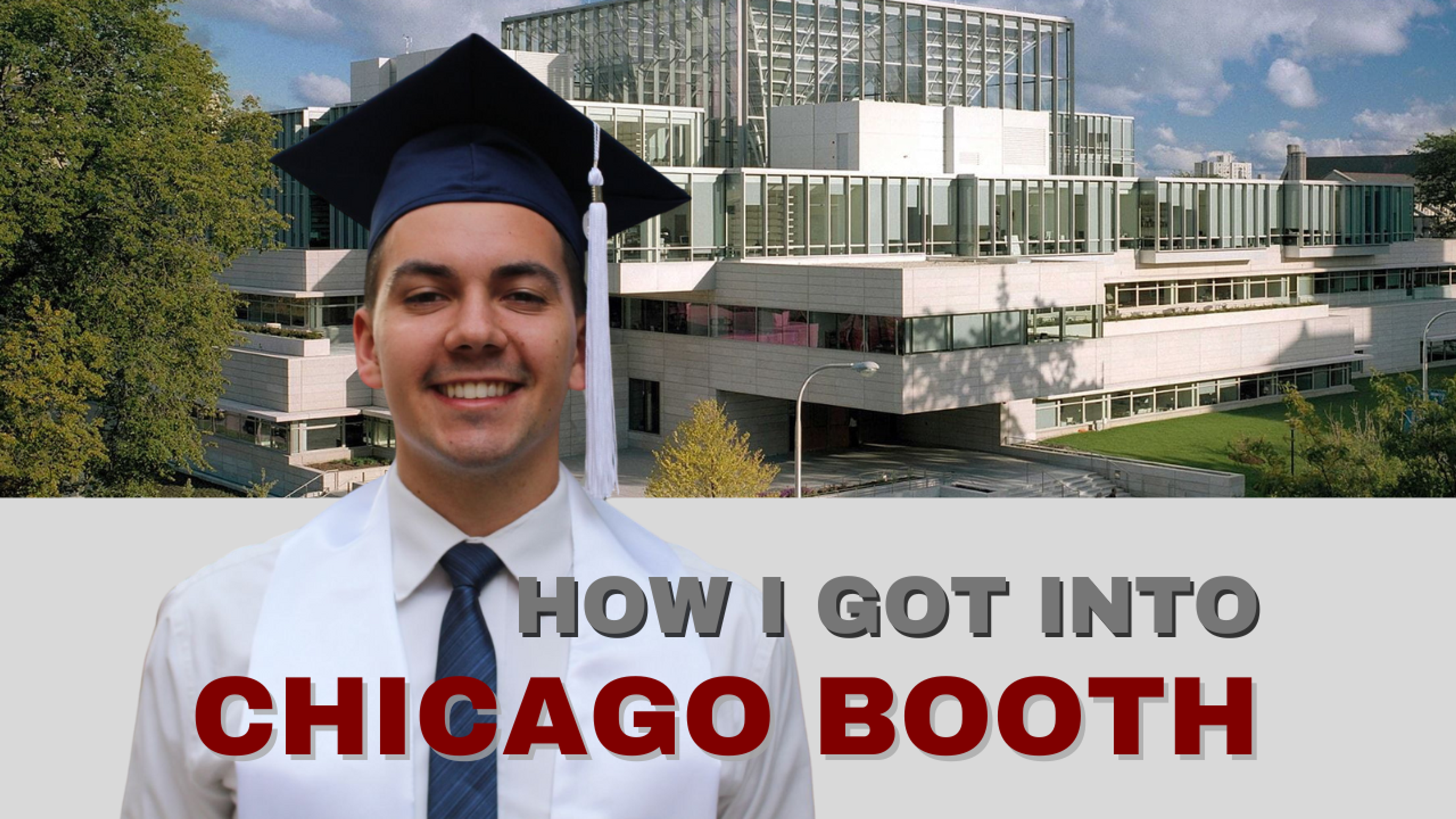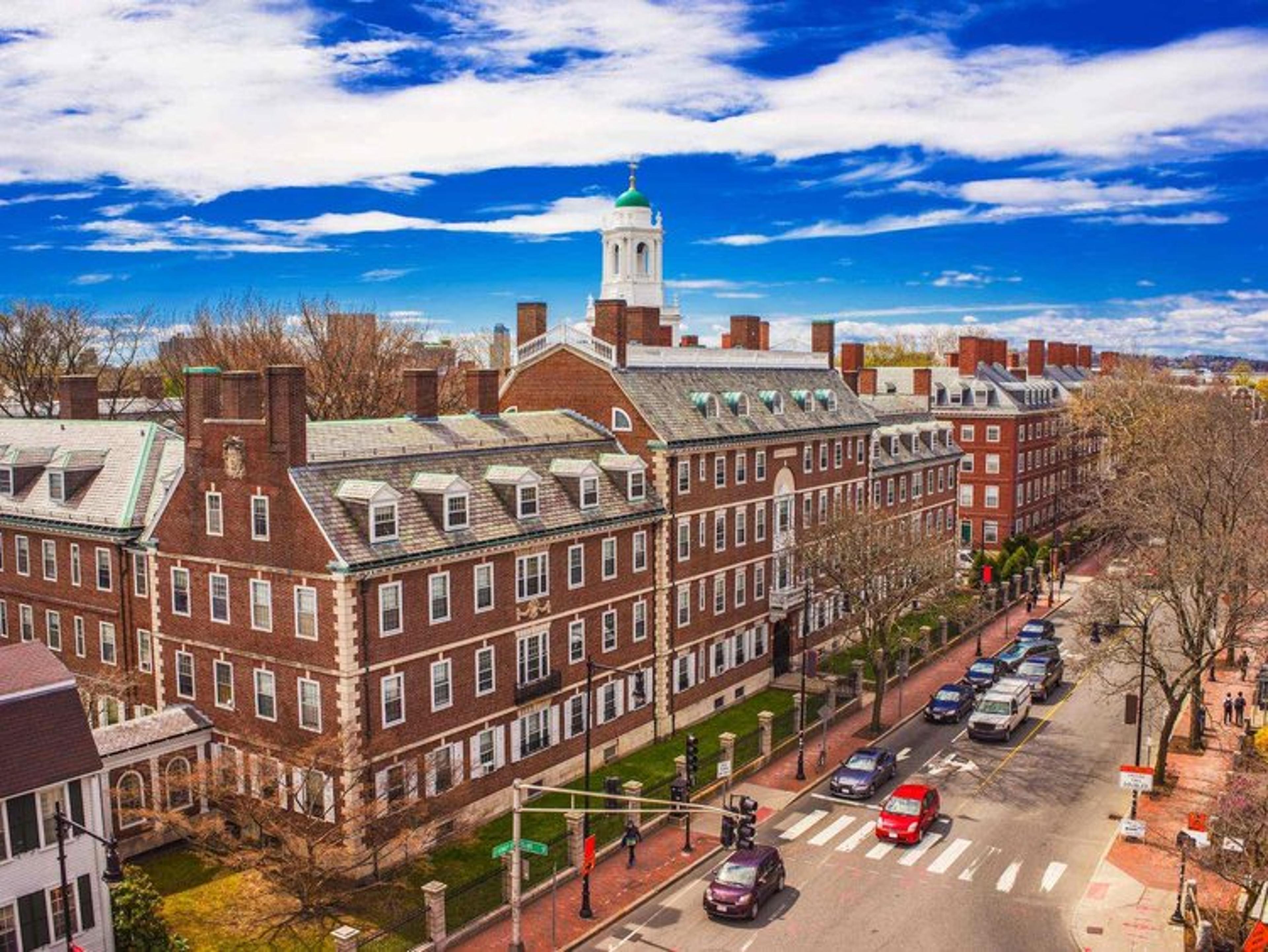How to Write a Powerful HBS Post-Interview Reflection
An HBS admit outlines her top tips for writing a compelling post-interview reflection that makes your application stand out.

By Siri G.
HBS and Wharton Admit | Non-target Applicants | Experienced Storyteller
Posted June 13, 2025

Table of Contents
Free Event

Featuring Horatiu S.
Profile Power: A LinkedIn Profile That Gets You In
Starting Tuesday, September 2
11:00 PM UTC · 45 minutes

Featuring Horatiu S.
POV: You just finished your HBS interview and now have 24 hours to submit a reflection essay.
First, if you made it to the interview stage in your HBS application process—congrats! You’re almost there. If you're not quite sure on the specifics of what the post-interview reflection is, it’s a unique aspect of the HBS application process designed to capture your thoughts and insights about the program after the interview.
HBS Post-Interview Reflection Rules
Harvard Business School has outlined some core rules for the written reflection part of the interview process. Here’s what the admissions office has to say:
- The Post-Interview Reflection is not intended to be another formal essay. Think of it instead as a reflection after a meeting.
- We will be much more generous in our reaction to typos and grammatical errors than we will be with pre-packaged responses. Reflections that give any indication that they were produced before you had the interview will raise a flag for us.
- We do not expect you to solicit or receive any outside assistance with this exercise.
- Your Post-Interview Reflection is due within 24 hours of the conclusion of your interview. Let the interview soak in a little bit...no need to start writing your reflection right at the conclusion of your interview.
- There is a word guidance of 300-450 words for the Post-Interview Reflection.
As an applicant who just made it through the process of writing neat and proper material for your MBA admissions, this may seem a little confusing. Somehow Harvard’s post interview reflection needs to be not formal but also make sense and prove to the admissions committee that you’re a good choice. So how do you do that? Here are some tips that have helped me and other prospective MBA students approach the post-interview reflection essay.
Tip #1: Brain Dump
Keep a few sheets of clean paper with you when you head to your interview. As soon as you leave the room or end the call, take 15 to 20 minutes to jot down any thoughts and initial reactions you can recall from the interview. HBS does not allow applicants to record their interviews, and you don’t want to forget any critical details. Brain dumping ensures that you capture as much as possible from the whole interview experience.
Some prompts to consider include:
- What comments did your interviewer(s) make about your application?
- What resume experiences did they address?
- What questions did they ask, and what were your responses?
- What are your initial reactions?
- Do you think you answered each question fully?
- What key moments do you keep replaying in your head?
- Are there any questions you wish they asked?
- Above all else, do you feel like you left it all out there?
Tip #2: Recharge
You know it by now: the admissions process is a tiring affair. So after you’ve captured your initial notes, it’s important to get some space. This allows you to process what happened and truly reflect on the experience. Eat a snack, call your mom, touch grass—do whatever it takes for you to release any remaining nerves and reset your focus for the day.
I’m a verbal processor, so I find that talking it out helps me pick up on moments I may have missed initially. This is where a coach helps immensely. Your coach knows your application inside out—they can be a sounding board for any key experiences you want to cover in your reflection that you haven’t had a chance to explain in your interview.
Tip #3: Get to Work
Make your way back an hour or two later and draft an outline, pulling details from your brain dump to address in your essay.
While the structure and format of your reflection can vary depending on your interview and overall candidacy, consider identifying two or three experiences that you want to revisit, emphasize, or expand on in your essay. Your reflection should be additive; avoid bringing up new or unrelated topics. Also, it’s not advised to go back on anything you said in the interview. Instead, consider what you wish you could add if you had more time.
Remember to be as specific as possible in your reflections. Don’t draft your essay before your interview. In fact, you should make clear connections to the exact conversations you’ve had with your interviewer. Where possible, make it personal so it feels truly reflective of that moment in time.
A powerful way to conclude your reflection is to tie your thoughts back to HBS and emphasize your commitment to the program. This will look different for everyone, but anchoring your reflection on themes you highlighted in your application builds a cohesive case to admissions on why they should admit you.
Tip #4: Don’t get sloppy
I highly recommend you build a solid draft of your essay before going to bed for the day. Then, in the morning, you can come back with fresh ideas on how to elevate your reflection and polish your writing. Swap any bland wording with expressive verbiage to make your message more powerful.
The admissions committee recognizes this essay was drafted in 24 hours and therefore may not be as polished as your other essays. At the same time, this is your last opportunity to bring it home—HBS is giving you the final word, make it count.
These are just a few tips for HBS applicants out there crafting their post-interview reflection. If you want more guidance or need a coach on deck, schedule a free intro call with me.
Example Reflection
Since my interview with [names of your interviewees from the HBS admissions committee], I’ve found myself thinking about how well-developed and introspective the questions presented were, and have continued to think about them in terms of my goals for the next several years.
A significant moment for me was when [name] asked about a difficult decision I had to make. I shared an instance where I had to choose between two promising but mutually exclusive strategies: one that would help my company’s immediate customer growth and another that would reorganize our back-end for employees. In retrospect, I wish I had elaborated more on the thought process and the criteria I used to make that decision, as doing so would have allowed me to clarify that my choice was driven by a careful analysis of long-term benefits versus short-term gains. Still, at the end of the day, I felt like the admissions committee appreciated this example and was able to understand my ability to think strategically and make tough decisions under pressure.
The interviewer’s interest in my leadership experiences at [Company] also stood out. We discussed the strategic project I led last year, which aimed to revamp our company’s supply chain management. I appreciated the opportunity to elaborate on the challenges I faced and how I navigated them, particularly in terms of team collaboration and stakeholder engagement.
Another topic we explored was my volunteer work with [Non-Profit Organization]. I spoke about the mentorship program I started, aimed at supporting underprivileged youth. The interviewer’s questions helped me realize the broader impact of this initiative, beyond the immediate outcomes. This discussion reinforced my commitment to social responsibility and how it shapes my professional aspirations. I wish I had more time to discuss how this experience influenced my leadership style, emphasizing empathy and community engagement.
We also spent some time talking about my work in diverse teams. I recounted a challenging but rewarding project where I led a cross-functional team with members from different cultural backgrounds. The key takeaway from this experience was the importance of inclusive leadership and effective communication. I believe I effectively conveyed how these experiences have prepared me for the collaborative environment at HBS, but in hindsight, I could have further emphasized specific instances of overcoming cultural barriers and fostering teamwork.
Overall, I extremely enjoyed my chance to talk with the admissions team and feel confident about my responses. If given another chance, I would have taken more time to emphasize my strategic thinking and decision-making process more clearly. I also realize the importance of articulating my personal growth and how these experiences have prepared me for the challenges at HBS.
This interview reaffirmed my passion for leadership and innovation, and I am more committed than ever to contributing to the HBS community. I appreciate the opportunity to reflect on this pivotal experience and look forward to the possibility of joining HBS. The interview process has been incredibly insightful, and I am excited about the prospect of bringing my unique perspectives to HBS.
Final Note
Writing a top-of-the-line post-interview reflection is your final opportunity to make a strong impression on the admissions committee. By taking the time to brain dump your thoughts, recharging to gain perspective, structuring your reflection with specificity, and polishing your draft, you’ll be able to submit a compelling essay which reflects your aptitude for the program. Remember to always tie your thoughts back to HBS and use your reflection to reinforce your commitment to the program.
Also, don't stress too much about perfection. The committee understands the time constraint and is looking for your ability to reflect thoughtfully and candidly on your interview experience.
An extra tip: Be authentic and honest in your reflection. The admissions committee can tell when responses are genuine and when they are overly polished. Let your personality and true reflections shine through and your essay will easily stand out to the team. Good luck and nail that reflection!

Written by Siri
4.9
(13)
Hi there! I'm Siri. I’m originally from Philadelphia, where I graduated from Drexel University with a B.S. in Information Systems. Currently, I'm a Product Marketing Manager at Microsoft. My experiences lie at the intersection of tech, business, and people. If my profile resonates with you, let’s chat! I was admitted into the HBS 2+2 program and will matriculate in a few years. In my free time, I enjoy reading, traveling, and exploring restaurants with friends.
Siri has helped clients get into organizations like:
The Wharton School (UPenn)
Columbia Business School
Harvard Business School
Chicago Booth
Kellogg School of Management (Northwestern)











